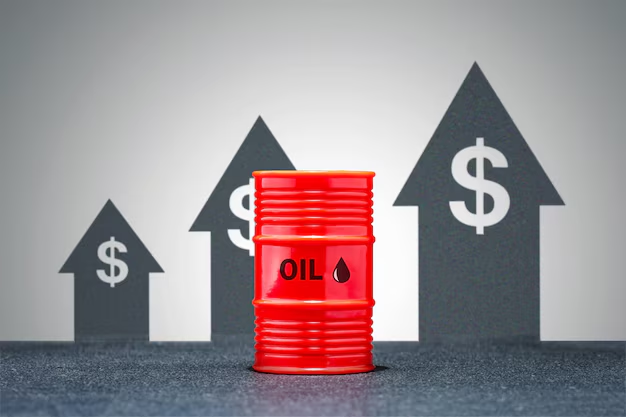
The rollercoaster ride of oil prices
Imagine waking up one morning to hear that gas prices have blown through the roof overnight. You dash to the news, to find out that there is a crisis in the Middle East that has led to an oil shortage. Halfway around the world, meanwhile, a Chinese plant manager worries about higher cost of production due to the blowup in the price of petrochemicals, which are derived from crude oil. This is no dream, but a situation that occurs over and over in our global economy. Volatility in the price of oil is something that preoccupies everyone, from solo consumers to multinational corporations. But what triggers the wild swings, and how do the swings ricochet around the world? Let us enter the multifaceted world of oil prices, viewing their causes, their consequences, and what the future holds for us.
Understanding oil price volatility
What moves oil prices?
Oil prices are driven by a multi-dimensional mix of reasons ranging from supply-and-demand balances to geopolitics and market speculation. At its simplest, the price of oil is based on the balance of how much oil is being produced and how much the world is taking in. But this balance is routinely upset by extraneous factors.
For example, the Historical Journey of Edible Oil is a fitting metaphor. Just as the price of edible oils has gone up and down with shifts in farming practices, weather, and demand, so do the prices of crude oil go up and down with shifts in production and demand. But while edible oils are not so entangled with world politics and economics, crude oil is entangled with world politics and economics, and its price movements are accordingly more volatile.
Geopolitical tensions and supply disruptions
One of the most influential drivers of oil price volatility is geopolitical tensions. Areas that produce a high percentage of world oil, like the Middle East, are likely to be the ones. With every ratcheting up of tension, the threat of supply disruption hangs over the market, and prices rise. For instance, the 2019 drone attack on the Saudi oil facility briefly removed 5% of world supply from action, which added nearly 20% to the price in a single day.
The role of opec
The Organization of the Petroleum Exporting Countries (OPEC) plays a pivotal role in stabilizing—or destabilizing—oil prices. By coordinating production levels among member countries, OPEC can influence global supply. However, disagreements within the group or decisions to cut production can lead to price surges. In 2020, OPEC+ (which includes Russia) agreed to historic production cuts to counteract the collapse in demand caused by the COVID-19 pandemic. While this move helped stabilize prices, it also highlighted the fragility of the global oil market.
The global impact of oil price volatility
Economic ripple effects
Volatility in the price of oil impacts not only the energy sector; it creates ripples across the global economy. Increased prices of oil increase transport costs, and commodities and services become more expensive. Inflation through cost has the possibility of diminishing purchasing power and constraining economic growth.
For instance, in 2008, oil prices hit a record high of $147 per barrel, and it prompted the world into a recession. When oil prices fall, however, as occurred in 2014-2016 and 2020, the economies of oil-exporting countries are ruinous. Venezuela’s economy, for instance, collapsed when oil revenues vanished, triggering hyperinflation and widespread poverty.
The petrochemical industry
The impact of oil price fluctuation is more than the price of gasoline. Petrochemicals, derived from crude oil and processed, are utilized to make a colossal list of products ranging from plastics to medicines used in the pharmaceutical industry. With the increase in oil prices, the production cost of these products increases, and thus profit margins are lowered for producers.
Knowing What Are Petrochemicals and How Petrochemical Oils Are Refined is the crux of recognizing their significance. The oils are processed into chemicals such as ethylene and propylene, the raw materials for millions of industrial goods. As an illustration, the automotive business depends on petrochemicals to manufacture lighter products that consume less fuel.
Environmental concerns
Oil price volatility also has environmental implications. Higher prices can induce investment in alternative energy, as substitutes become more competitively priced. But they can also induce greater exploration and production activity, particularly in environmentally sensitive areas.
The Environmental Impacts of Edible Oil production are a wake-up call. Palm oil, for instance, has deforestation and loss of habitat. Likewise, the Environmental Impacts of Petrochemical Oil refining and extracting lead to pollution and greenhouse emissions. As global warming is now on the agenda of the world, the sustainability of these processes is raised more and more.
The future of oil in a changing world
The rise of electric vehicles
Among the largest threats to the oil industry is the rise of electric vehicles (EVs). Governments and consumers alike are more worried about sustainability, and the use of gasoline and diesel will decrease. The Future of Electric Vehicles cannot ignore the Role of Petrochemical Oils, however. EVs still utilize petrochemical-based components for batteries, wiring, and other elements.
The transition to a low-carbon economy
The Future of Oil in a Low-Carbon Economy is uncertain. Solar and wind power are becoming increasingly popular sources of alternative renewable energy, but oil will inevitably continue to be a part of the global energy mix at least for a while to come. But the industry must acclimatize to changed realities by investing in clean technology and novel applications of oil.
For example, The Palm Oil Sustainability is a major theme for the food-grade oil sector, where businesses have achieved deforestation-free supply chains. Similarly, the petrochemical industry has to address the Challenges Confronting the Petrochemical Oil Industry, ranging from emissions reductions and gains in efficiency.
The role of innovation
Innovation will play a role in addressing the future of oil. Innovation in Edible Oil Refining and How Petrochemical Oils Are Refined can lead to more sustainable processes. Furthermore, the innovation of Understanding Hydrogenated Oils and other alternative materials can reduce reliance on conventional petrochemicals.
Conclusion
Volatility in the price of oil is an ever-changing, multi-dimensional phenomenon driven by an enormous array of determinants ranging from geopolitics to the environment. Its implications spread around the globe, impacting everything from the quality of life to the stability of a nation. As the economy goes towards the low-carbon world, the challenge and opportunity for the oil industry exist.
The History of Edible Oil reminds us that business can change according to shifting demand and pressure. So too, therefore, can the oil business adapt if it is to have a future in an increasingly sustainable world.
And to the future, one single question fills our minds: Will the oil industry transform itself in order to flourish in a low-carbon age, or be left behind in the past?




